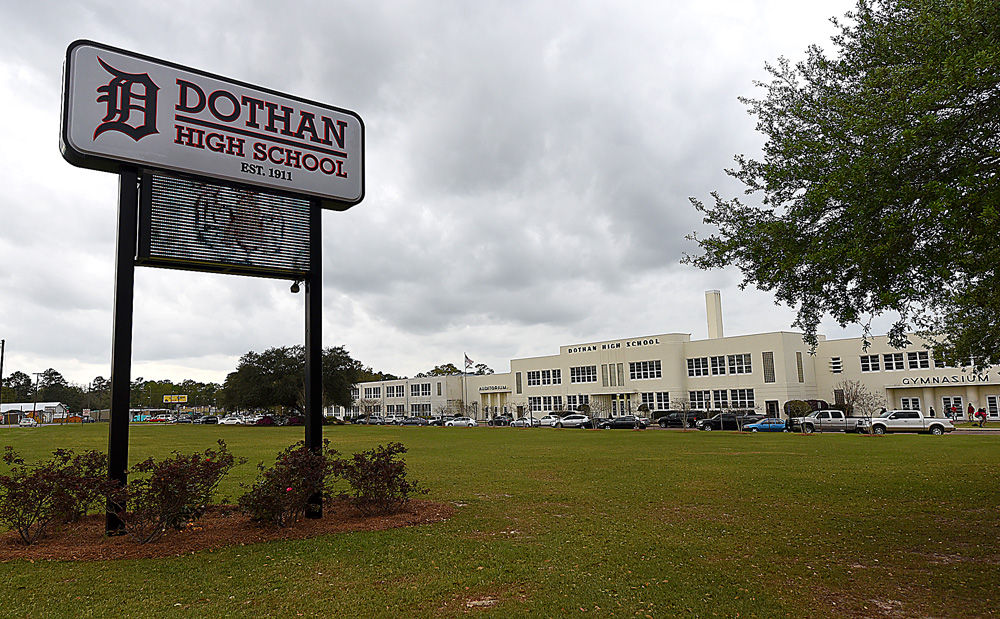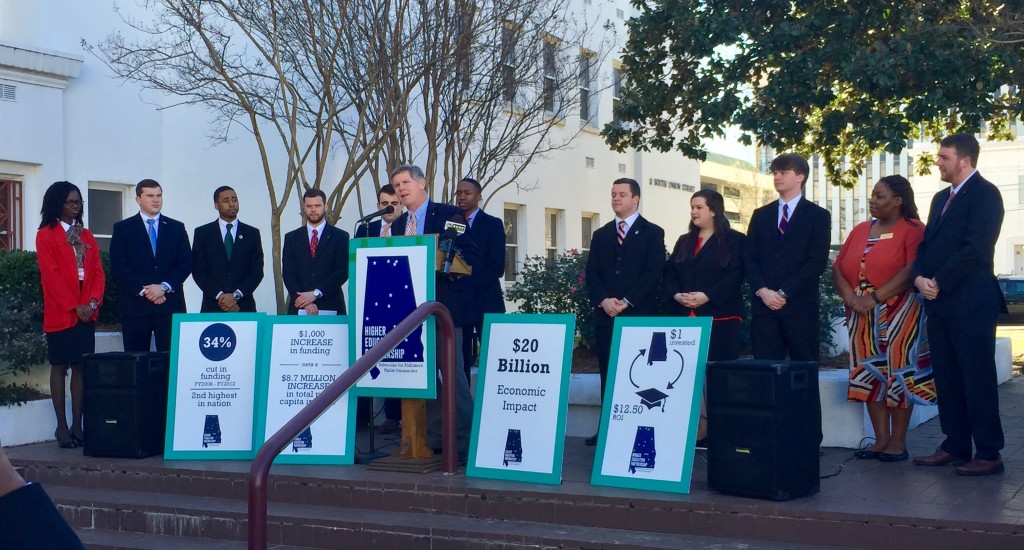Social media pages help members share local Alabama history

When Alan Clark called Allen Jones about seven years ago to put together a Facebook page so their Dothan High classmates could post about their memories of Dothan, Jones thought they might end up with two or three hundred members. “Old Dothan AL Memories” currently has more than 8,000. “It just grew,” Jones said. “By and large, I think it’s turned out to be a real good thing. We’ve got all kinds of people on there now.” Jones and Clark are the page administrators. Both graduated from Dothan High in 1973, Clark the class president and Jones the Student Government Association president. Jones lives in Albuquerque, New Mexico, and spends about 10 or 15 minutes a day monitoring posts and evaluating membership requests. “We’ve got a lot of people that want to join,” Jones said. “I have to be careful because sometimes it’s people wanting to get access to that big of a group to sell something or Lord knows what.” Periodically he warns people that if somebody calls or emails them saying they’re an old friend from Dothan, it may or may not be true. “Somebody could get on that website for a couple of hours and get pretty knowledgeable about some old Dothan stuff,” Jones said. Like any social media page, content is driven by what members post. With the increase in recent years of websites focused on history, the Facebook page is another tool for learning about Dothan. “Ray Hutto and Frank Gaines have been a great source of some of the pictures and some of the memories there,” Jones said. “Robert Register is a historian. He jumps on there a lot.” Hutto, a retired Dothan firefighter, has been interested in local history most of his life. When he worked as an inspector with the fire department in the late ’70s and early ’80s, he went inside every business in town. He has his own Facebook page titled “Some siftings of Ray Hutto” that includes photos, documents, clippings, ads, postcards, information and items he ran across while doing genealogy over the years. “I traveled all over the Southeast researching my family,” he said. “We’re originally from South Carolina, came from Germany in 1735.” The research took time and effort, but for Hutto it was a learning experience. In those days, genealogy was done with books and documents, some on microfilm or microfiche. The downtown library has the Dothan Eagle on microfilm but doesn’t have an index. That often meant looking for articles and photos with few clues on exactly where to look. “I spent many, many hours in that library on that machine before they came out with computers,” Hutto said. Hutto subscribes to Ancestry.com, Newspapers.com, and other websites that have resources and tools that make it easier to find records and information about people, places and things. Many family trees have already been documented. It’s a timesaver for genealogy, history and other research. While a lot of information is posted online, Facebook offers the chance to directly ask people for details. Questions and photos prompt discussions. A recent inquiry on “Old Dothan AL Memories” about the King’s Inn restaurant and lounge yielded more than four dozen responses. Sometimes members answer questions with links to websites that provide detailed information. It’s the exchange of ideas by people with knowledge of the subject that makes the responses intriguing. “You could never communicate if you didn’t have this social media,” Hutto said. Hutto likes sharing the hundreds of postcards he’s amassed over the years. Besides posting them online, he’s enlarged and mounted some on foam which he uses when he speaks to civic, church and senior citizen groups. He finds postcards of downtown Dothan and local buildings, many of which have since been torn down, on eBay. Sometimes the message on the postcard is more interesting than the picture. A 1945 postcard from a woman who passed through Dothan heading south asked someone to write her husband asking him to go through with the divorce as fast as he could. “I love someone else now,” she wrote. “A lot of these I buy not for the front but for the back,” Hutto said. Republished with the permission of the Associated Press.
Student government presidents write open letter to state lawmakers

Student Government Association (SGA) presidents from universities across the state joined in writing an open letter to lawmakers this week in an effort to emphasize the importance of higher education. According to a newss release, SGA presidents collaborate through the University Student Presidents Council, organized under the Alabama Higher Education Partnership (AHEP), to advocate for the state’s public universities. Leaders held a joint news conference on Thursday to discuss the letter, which urges state legislators to take into account recent findings by the University of Alabama Education Policy Center study. The study notes that Alabama’s public universities have endured a 34 percent decrease in funding since 2008, the second-deepest cuts in the country, and adds that “for every $1,000 increase in state higher education funding there is a reciprocal $8.7 million increase in total per capita income.” “My peers from around the state have come together today to stand in solidarity with one another, because we understand the tremendous impact our public universities have on the well being of Alabamians,” University of Alabama SGA President Elliot Spillers said in the release. “Because over 85 percent of the Education Trust Fund’s revenue comes from income and sales tax, we know that increasing income-earnings potential for Alabamians is one of the key ways we can increase investment opportunities for all of education: Pre-K through PhD,” Auburn University SGA President Walker Byrd said. Gordon Stone, executive director for AHEP, noted that a letter coming from the elected officials of Alabama’s 14 public universities sends a strong message as leaders descend on Montgomery for the legislative session. “They are elected by their peers,” Stone said. “For them to be able to speak from that perspective is an important voice.” Stone noted that this is only the organization’s first attempt at raising awareness on the importance of higher education this year, noting that Higher Education Day, which is scheduled for Feb. 25, is one of the group’s biggest advocacy efforts. “It’s not a one-shot attempt on our part,” Stone said. “We will continue to do this over the course of this year.” Stone noted that, while funding is integral, the key message his organization and the SGA presidents are trying to get out is that either by “direct or close indirect” connections, higher education impacts every facet of life in the state, from healthcare to infrastructure. “We want to make sure the legislators keep in mind that public universities are integral to success,” Stone said. “We hope they’ll recall and put some value to what we’re showing them today, which is the value of our public universities. It’s not about specific legislation at this point as much as it is helping everybody involved in public policy to understand the importance of public education.”


